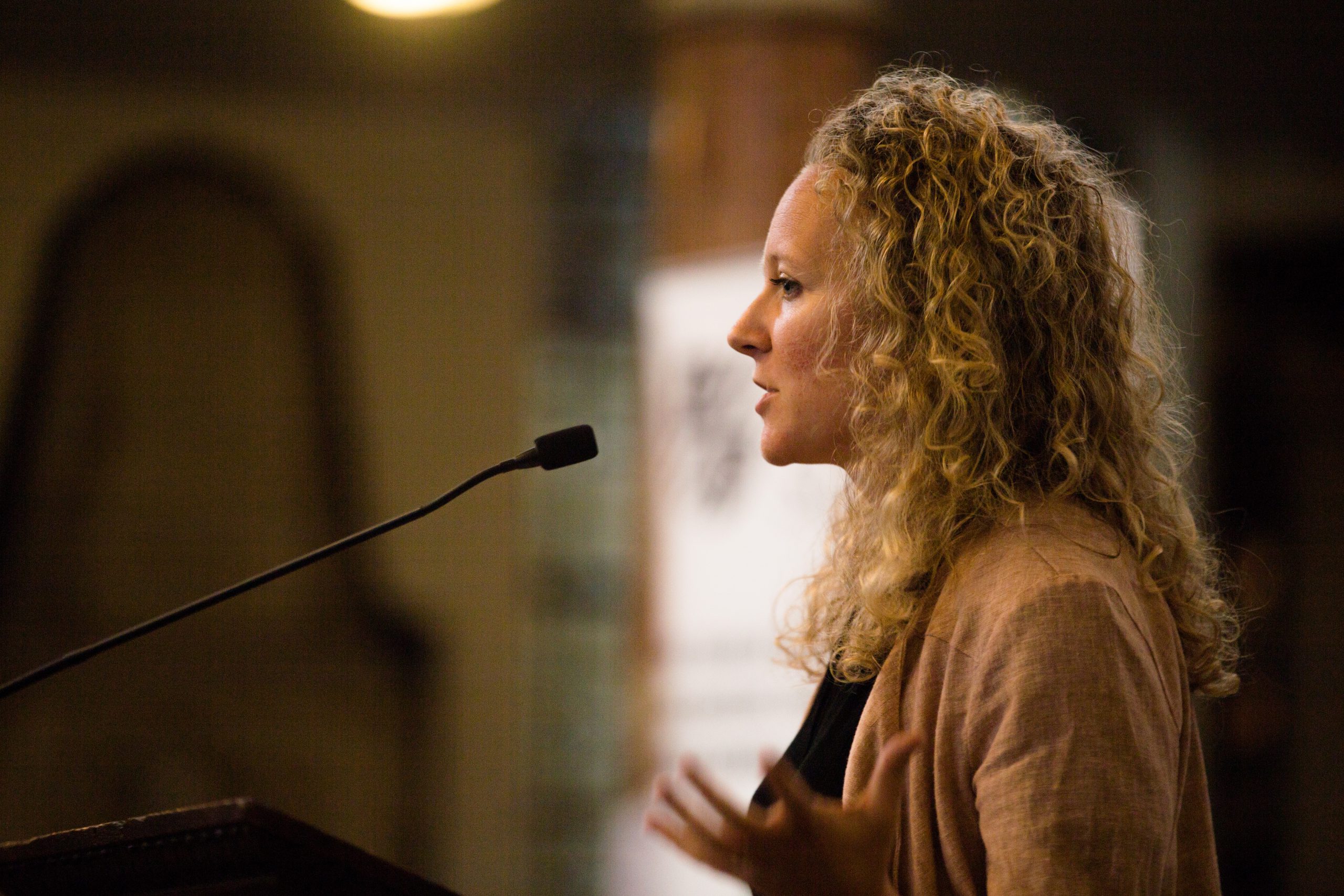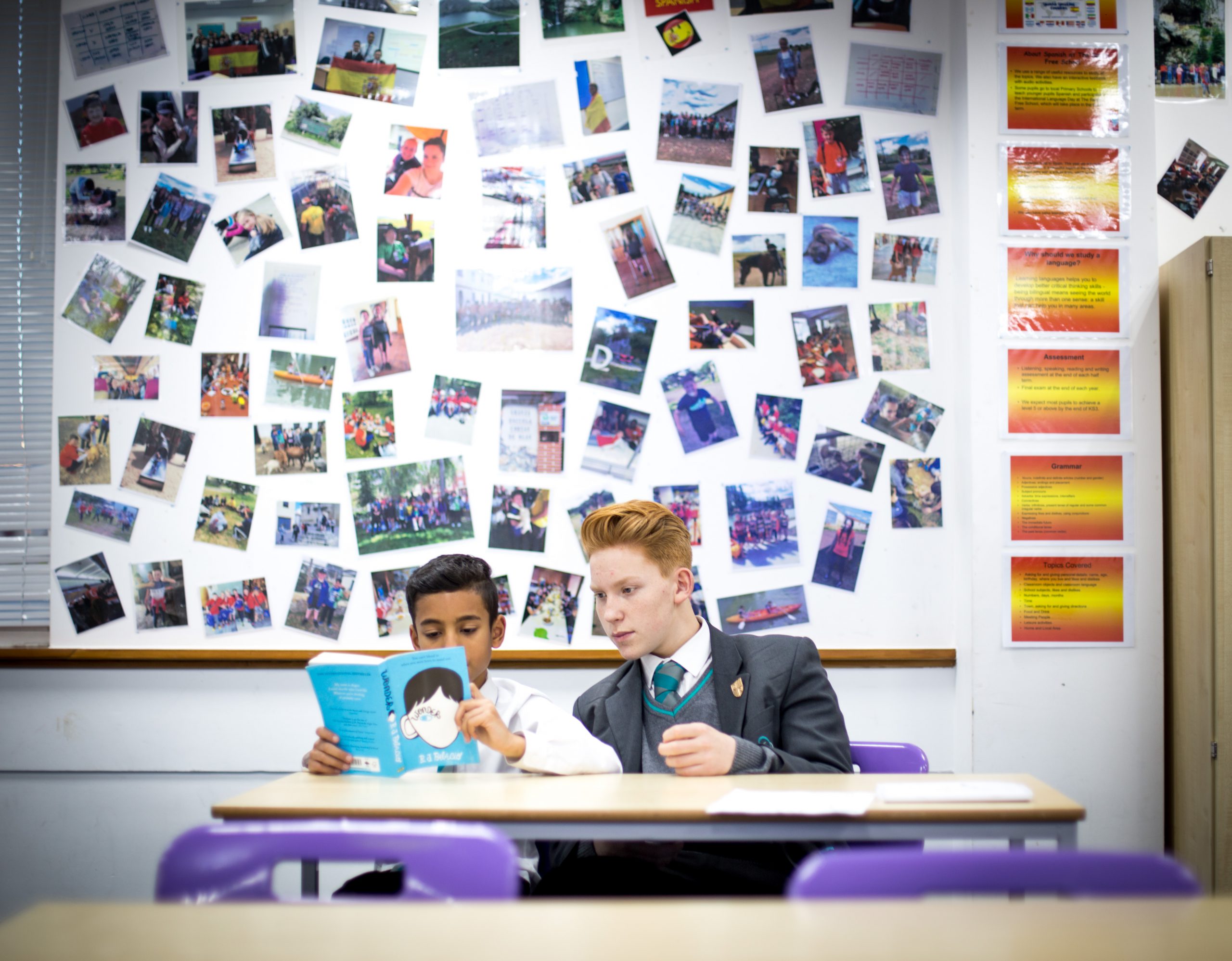
This year, Big Change pioneering project partner Franklin Scholars celebrated seven years of innovation, learning and impact in peer mentoring. Since 2013, Franklin Scholars has worked with 80 schools to launch and refine peer mentoring programmes with the evidence and conviction that ‘when one teaches, two learn’, supporting over 4000 young people to support each other through key transition moments.
We caught up with Founder Jessica Barratt to hear her reflections on the journey so far, what she’s learnt from young people, and how she’s steering the ship into a digital future.
Franklin Scholars is rooted in a fierce belief in the power of young people to support each other. Your impact report showcases seven years of evidence for this. As we ‘build back better’, why is it so important to have young people co-designing the future of education?
Because they are the key stakeholders! And for too long, our education system has been built around outdated ideas and without putting the child or young person at the centre.
When we were first designing the Franklin Scholars programmes we involved young people along the way, and seven years later I can say that some of their insights and ideas have proven to be integral to the success of our work.
Jessica Barratt, Founder, Franklin Scholars
In this extraordinary year, what memorable lesson has a Franklin Scholar taught you?
Our peer-mentoring programmes were all cut short, half-way through the school year. But I’ve been really delighted to hear from teachers about how some mentors have reached out to their mentees and continued to provide support even at a distance, during lockdown.
I saw a letter that one Franklin Scholar sent to his mentee, entitled “Ways not to be bored” – which was, on the surface, a list of suggestions for keeping entertained, but actually contained some really insightful and important advice around staying connected to friends and family, and looking after their mental health. I was really inspired.
Why is investing in supportive relationships for all students key to addressing the learning inequities in our current education system?

It’s impossible to overestimate the power of a supportive relationship. Young people today are facing a lot of challenges – some of which are visible and some aren’t – and one young person’s struggles are never identical to another’s.
But all the evidence suggests that the simple fact of a young person having one strong developmental relationship, and a dedicated time and space to talk to that person over a sustained period of time, can make a huge difference in how they respond to and overcome those challenges.
How this relates to learning inequities is clear – socio-emotional challenges and mental health issues will present blockers to a young person’s readiness to learn, so if these aren’t dealt with first, they will inevitably struggle on the academic side too.
Your seven year impact report celebrates some amazing achievements, what are you most proud of?
While I can’t help but be proud of the number of young people, schools, and regions of the country that we’ve worked with, what has always made me feel most proud is the depth of impact that our programmes have had on individual young people. Our impact report clearly shows that we’ve worked with some very vulnerable children and young people and provided some crucial support, without which their outcomes might have been very different.
On top of this, the double benefit – the fact that our programmes have had positive impacts on both mentors and mentees, and the fact that this impact has been consistent over seven years of programmes across different schools and different contexts, shows that we’ve definitely been doing something right!
You’ve pulled off an ambitious ‘pivot’ this year, launching Franklin Scholars into a digital future. Are there insights we could all learn from to keep the quality of our relationships in a digital world?
At Franklin Scholars we have always made sure that the core of our work is offline, face-to-face relationships.
In an increasingly digital world, we know that nothing can replace the power of human-to-human relationships. And that isn’t changing.
Jessica Barratt, Founder, Franklin Scholars
We are simply using digital tools to help facilitate those in-person relationships. And we think that’s really important to hold onto – let’s embrace technology but use it to enhance and support human, face-to-face relationships, rather than replace them.
Franklin Scholars has done brilliant work supporting young people to support each other at times of ‘tricky transition’ in their school career. What advice would you give to a peer of your own at such a time?
Keep your eyes on the prize – i.e. the ultimate impact that you want to have, rather than how or what exactly you do to achieve that impact. It wasn’t easy for us to properly step back from the way we had been running programmes for seven years, and to think how else we could have an impact. It involved being super-critical of ourselves and really dissecting the core elements of our work to understand what were the “nice-to-haves” versus the “non-negotiables”.
Stay obsessed with the problem that you’re trying to solve, but be very open about how exactly you might be able to – and best placed to – solve that problem.
What’s your hope for the future of education?
My hope is that we steer the focus away from exams and from the traditional imparting of knowledge, and more towards inspiring curiosity and a love of learning, supporting problem-solving and creativity, empathy and collaboration… it’s a big and scary job but it’s heartening to know that there are so many great people working towards these goals.
Take a look at the free new resources all available on the Franklin Scholars website. Do get in touch with them if you’d like to start peer mentoring in your school, or sign up to their newsletter for further updates.
